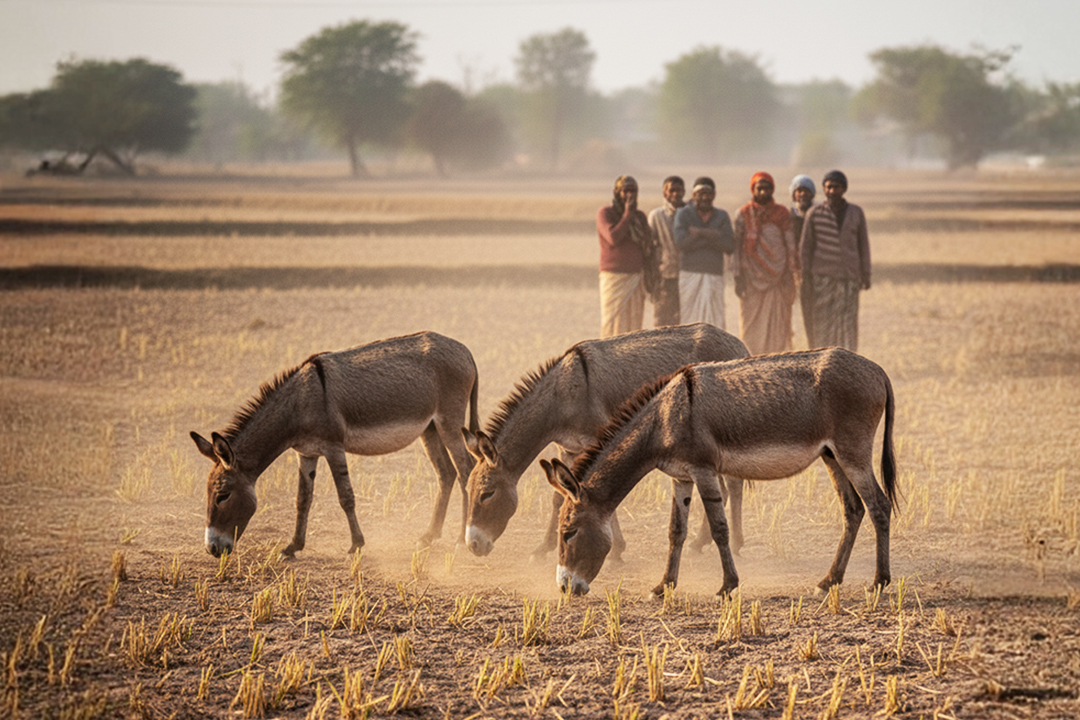The Silent Tragedy of Donkeys: India’s 94% Decline and a Global Crisis

If this were happening to humans, we would call it genocide. Yet, the quiet disappearance of donkeys across India and the world has gone largely unnoticed. According to the latest National Statistical Data, Madhya Pradesh is left with only 3,052 donkeys, a staggering 94% decline since 1997.
This is more than a local issue; it’s part of a global crisis. Two major forces are severing the centuries-old relationship between humans and donkeys: urbanization and mechanization, which are rendering their traditional roles in agriculture and transport obsolete, and the skyrocketing demand for ejiao, or donkey hide gelatine, in the Chinese traditional medicine and beauty industries.
Donkeys have been indispensable for over 7,000 years, powering caravans, transporting goods, and even ferrying prophets and gods in ancient stories. Our ancestors relied on them for survival and commerce, yet today, as their numbers dwindle, we barely notice.
The crisis is not just ecological but also deeply social. Communities that depend on donkeys for livelihood, particularly poor women and girls in developing regions, face increased workloads and financial strain as donkey prices surge. Meanwhile, the demand for ejiao, fueled by China’s prosperity, period dramas like Empresses in the Palace, and an aging population, is decimating donkey populations worldwide. Between 1997 and 2018, India’s donkey population declined 74%, worse than China’s 72%, showing that both inaction and active exploitation have devastating consequences.
This decline is a stark reminder of humanity’s alienation from nature. We mourn little, care less, and rarely consider how deeply our lives were intertwined with these humble creatures. Yet, to mourn is to begin to heal and to begin the work of saving what we have been destroying.
As donkeys vanish from our landscapes, so too do the stories, livelihoods, and histories intertwined with them. Protecting them isn’t just an act of conservation; it’s a moral responsibility, a chance to reconnect with a world we’ve long taken for granted.
Read Latest News and Breaking News at The Newsman, Browse for more World News



